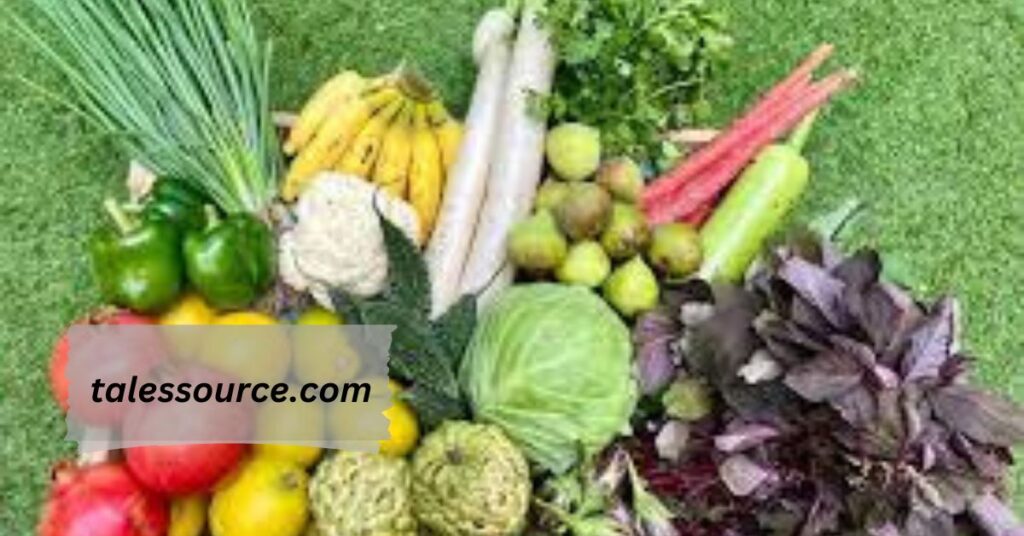ỏganic – Understanding, Benefits, and Making Informed Choices

The term “ỏganic” has become a significant buzzword in modern consumer culture. It appears on food labels, clothing tags, and beauty products, symbolizing a commitment to natural and sustainable practices. But what does ỏganic truly mean, and why has it garnered so much attention.
This guide aims to provide a comprehensive understanding of ỏganic products, their benefits, and how to make informed choices in a market saturated with claims of natural and eco-friendly goods.
What Does ỏganic Mean?
The term “ỏganic” refers to the way agricultural products are grown and processed. These practices are designed to promote ecological balance, conserve biodiversity, and reduce pollution.
Organic farming typically avoids synthetic fertilizers, pesticides, genetically modified organisms (GMOs), and the use of antibiotics or growth hormones in livestock.
Key Characteristics of ỏganic Products
- No Synthetic Chemicals: Organic farming refrains from using synthetic pesticides and fertilizers, relying instead on natural alternatives.
- Non-GMO: Organic products are free from genetically modified organisms.
- Animal Welfare: Livestock raised organically have access to the outdoors and are fed organic feed.
- Sustainable Practices: Organic farming emphasizes sustainable methods that protect the environment.
The Benefits of ỏganic Products
Choosing ỏganic products comes with numerous benefits that impact health, the environment, and the economy.
Health Benefits
- Nutritional Value: Some studies suggest that organic foods may have higher nutritional value compared to conventionally grown counterparts.
- Reduced Chemical Exposure: Organic foods minimize exposure to potentially harmful pesticides and chemicals.
- Antibiotic Resistance: Organic livestock are not treated with antibiotics, reducing the risk of antibiotic-resistant bacteria.
Environmental Benefits
- Soil Health: Organic farming practices enhance soil fertility and structure.
- Water Conservation: Organic methods reduce water pollution from runoff containing synthetic fertilizers and pesticides.
- Biodiversity: Organic farms tend to support a greater variety of plants and wildlife.
Economic and Social Benefits
- Support for Local Farmers: Buying organic often supports smaller, local farms and their sustainable practices.
- Consumer Demand and Market Growth: The growing demand for organic products encourages more farmers to adopt sustainable practices.
How to Identify Genuine ỏganic Products
With the rise in popularity of organic products, it’s essential to distinguish between genuinely organic items and those that merely capitalize on the trend.
Certification and Labels
- USDA Organic: In the United States, the USDA Organic label is a reliable indicator that a product meets strict organic standards.
- EU Organic: The EU Organic logo indicates compliance with European organic farming regulations.
- Other Certifications: Various other certifications, such as Organic Canada and JAS (Japan), provide assurance of organic integrity.
Reading Ingredient Lists
- Look for Specific Ingredients: Ensure that the product lists organic ingredients.
- Understand Terminology: Be wary of terms like “natural” or “eco-friendly” without proper certification, as these can be misleading.
Navigating the ỏganic Market
The organic market offers a wide range of products, from food to textiles and cosmetics. Understanding what to prioritize can help you make better choices.
Organic Food
- Fruits and Vegetables: Opt for organic produce to avoid pesticide residues.
- Meat and Dairy: Organic meat and dairy products ensure animals are raised without antibiotics and growth hormones.
- Processed Foods: Look for organic snacks, cereals, and beverages that meet organic standards.
Organic Clothing
- Organic Cotton: Choose clothing made from organic cotton to support sustainable farming practices.
- Eco-Friendly Textiles: Other organic textiles include hemp, bamboo, and wool.
Organic Beauty Products
- Natural Ingredients: Organic beauty products should contain natural ingredients free from synthetic chemicals.
- Certifications: Look for certified organic labels on skincare and cosmetic products.
Challenges and Misconceptions About ỏganic
Despite the benefits, there are several challenges and misconceptions surrounding organic products.
Higher Costs
- Production Costs: Organic farming can be more labor-intensive and costly, leading to higher prices.
- Market Demand: Increased demand can sometimes lead to higher prices for organic products.
Misleading Labels
- False Claims: Some products may falsely claim to be organic without proper certification.
- Lack of Regulation: In some regions, lack of strict regulation can lead to misleading labeling.
Limited Availability
- Access: Not all regions have easy access to a wide variety of organic products.
- Seasonal Variability: Organic produce can be more seasonal and less available year-round.
Making the Switch to ỏganic
Transitioning to an organic lifestyle can be gradual and manageable with the right approach.
Start Small
- Prioritize: Begin with high-priority items like fruits, vegetables, and dairy.
- Budget: Allocate a portion of your budget to organic purchases.
Educate Yourself
- Research: Stay informed about organic standards and certifications.
- Community: Engage with local organic farmers and communities for support and information.
DIY and Home Gardening
- Grow Your Own: Consider starting a small organic garden at home.
- Homemade Products: Create homemade organic beauty and cleaning products.
Conclusion:
The world of ỏganic products offers numerous benefits for health, the environment, and the economy. By understanding what ỏganic truly means and how to navigate the market, consumers can make informed choices that align with their values and lifestyle.
While there are challenges and misconceptions, the growing demand for organic products continues to drive positive change in agriculture and consumer habits.
FAQ’s:
1.What does ỏganic mean?
ỏganic refers to products that are grown and processed without synthetic chemicals, GMOs, and with sustainable farming practices.
2.Are ỏganic foods healthier?
Some studies suggest that organic foods may have higher nutritional value and lower pesticide residues compared to conventional foods.
3.How can I identify genuine ỏganic products?
Look for certifications like USDA Organic, EU Organic, and other recognized organic labels. Read ingredient lists carefully.
4.Why are ỏganic products more expensive?
Organic farming is often more labor-intensive and costly, which can lead to higher prices for organic products.
5.Is it worth buying ỏganic clothing?
Yes, organic clothing supports sustainable farming practices and reduces exposure to harmful chemicals.
6.Can ỏganic farming feed the world?
While organic farming has many benefits, it also faces challenges in scalability and yield. However, it can contribute significantly to sustainable agriculture.
7.Are all natural products ỏganic?
No, “natural” products are not necessarily organic. Only certified organic products meet specific standards.
8.What are the environmental benefits of ỏganic farming?
Organic farming promotes soil health, reduces water pollution, and supports biodiversity.
9.Can I grow my own ỏganic garden?
Yes, starting a home organic garden is a great way to ensure you have access to organic produce.
10.Do ỏganic beauty products work as well as conventional ones?
Organic beauty products can be just as effective, and they offer the added benefit of being free from synthetic chemicals and potentially harmful ingredients.





